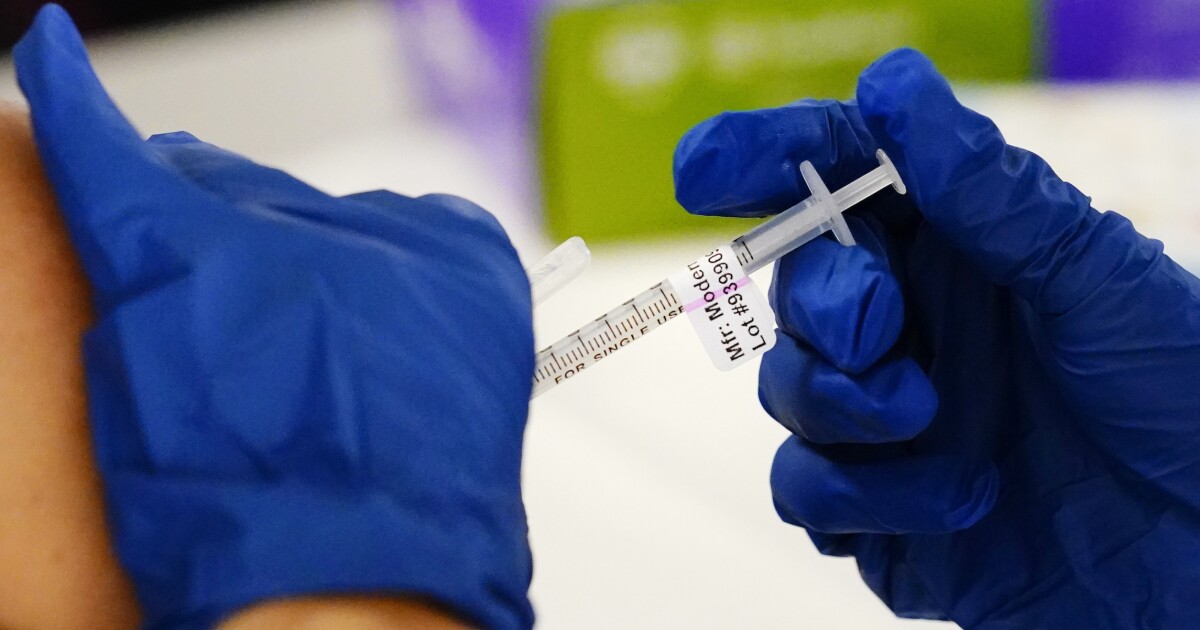

The Food and Drug Administration’s panel of independent vaccine experts has recommended that Moderna’s COVID-19 shots be authorized for children 6 to 17, positioning it to become the second vaccine available to young people.
The panel, known as the Vaccines and Related Biological Products Advisory Committee, voted on two separate expanded authorizations. The first was the question of whether the benefits of administering two 100 microgram doses of the vaccine to children 12 through 17 outweighed the risks. The panel voted unanimously to approve authorization for that age group. The second question concerned the authorization of two 50 microgram dose shots in children ages 6 through 11. The vote to recommend was also unanimous.
WHO REPORT SPARKS RENEWED CLASH WITH CHINA OVER COVID-19 ORIGINS
The vaccine’s safety profile and minimal side effects suggest that the FDA will authorize expanded use of the vaccine in that age group. The Centers for Disease Control and Prevention will also have to grant approval before shots can begin shipping out to states.
The bulk of the morning was spent parsing through reports of negative side effects of the vaccine, specifically instances of myocarditis and pericarditis, or inflammation of the heart muscle and surrounding tissue. International monitoring data suggested a higher risk of myocarditis in young men 18 to 39 who took the Moderna vaccine over the Pfizer-BioNTech vaccine, though the company said those concerns have subsided after collecting more real-world data.
Moderna first applied to expand the authorization to cover children 12 to 17 last summer, but concerns about rare cases of myocarditis compelled federal officials to delay a decision.
Members of the committee soundly endorsed the addition of another vaccine to the market, but it remains unknown whether it will make a substantial difference in vaccination rates among minors. The Pfizer-BioNTech vaccine has been authorized for children 5 to 11 since last month, but only 29% of children in that age group have gotten the shots.
The FDA’s panel of experts will convene again on Wednesday to discuss the authorization of Moderna and Pfizer-BioNTech vaccines for children under 6.
Many parents have been eagerly awaiting authorization of a vaccine for young children. The vaccination schedules for both vaccines will not allow all children to confer the full protection from a complete regimen by the time schools reopen for the fall term, frustrating parents who called in to the meeting. Aimee Baker, a parent, said the agency “waited far too long” to consider authorizing shots for young children.
The fact that this meeting is prioritizing an age group that already has access to a vaccine prior to the under-5s is unacceptable,” she said. “Due to the need for three doses, vaccination with Pfizer will take several months for a child to be fully vaccinated compared to Moderna, too late for kids to start pre-school safely this fall.”
CLICK HERE TO READ MORE FROM THE WASHINGTON EXAMINER
Children are less likely than older people to experience severe illness due to COVID-19, though it does happen. As of May, 189 children ages 5 to 11 and nearly 450 adolescents have died of COVID-19 throughout the course of the pandemic. The omicron surge over the winter drove up pediatric hospitalizations as well.






